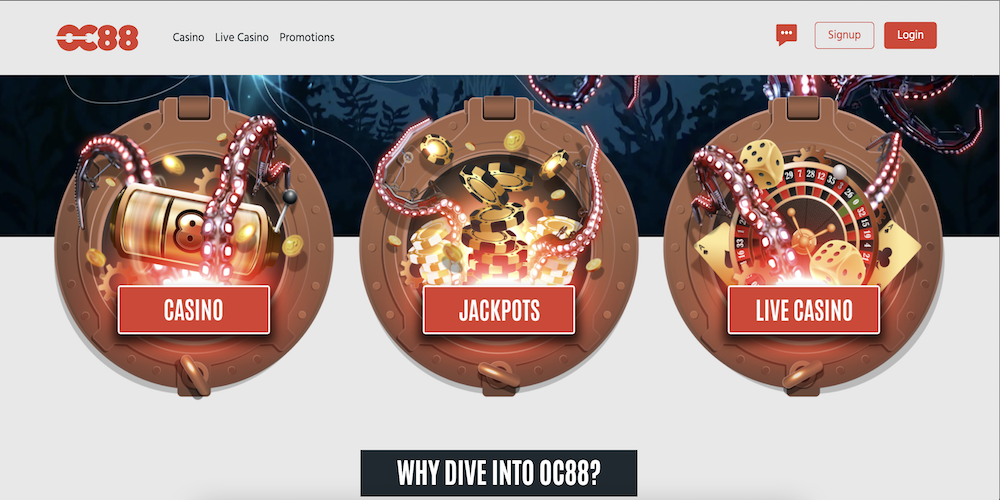Should Online Loot Boxes Be Banned From Children’s Games?

Online Loot Boxes: Are They Really Gambling?
If you play certain console games like Call of Duty, Halo 5, League of Legends, and the FIFA series, you’re likely familiar with Loot Boxes. Currently, the media is flooded with negative coverage on gambling and addiction, causing the iGaming industry to become even more vigilant about their customers. Online Loot Boxes are the newest promotional offer, and they appear to bypass both local and national regulations. So today at Jackpotfinder.com, let’s have a look at Loot Boxes to see what all the fuss is about.
What Are Online Loot Boxes?
Also referred to as “Loot Crates” or “Mystery Boxes,” these items can be bought through online gaming websites or within the games themselves. The catch is that the contents of the box are unknown before purchase, meaning people are essentially paying for a mystery item. With this, they hope to win the jackpot online. This concept originated from earlier versions of gaming, where rewards were given out randomly to players, often during large online multiplayer games. These surprise packages have now become a significant source of revenue for gaming companies. Just like gambling at the slots at an online casino like 22Bet Casino, these prizes are all down to luck.
However, some argue that these promotions are deceitful and exploitative, as they seem to primarily target younger teenagers. It remains to be seen if they have the same addictive qualities as those found in gambling addiction. The potential effects of these promotions on young children are of particular concern, and there is much uncertainty regarding their future. There is talk of banning these promotions, as has already occurred in Belgium.
The History Of Online Loot Boxes

The origin of Loot Boxes is easily traced back to their beginnings as an internet phenomenon. In 2004, they made their debut in a Japanese manga version of the side-scrolling MMORRP game, Maple Story. Known as “Gachapon Tickets,” each ticket was worth around 100 Yen. Then in 2007, the Chinese video game Zhengu rose in popularity, featuring a Loot Box. These Loot Boxes quickly spread due to the widespread use of internet cafes in poorer regions of the world. It didn’t take long for game manufacturers to take notice and begin to pay attention to their impact.
In the Western world, the game Team Fortress was the first to feature these promotional offers, released in 2010. Around the same time, American video game developer Valve introduced an option to win random Loot Crates that required purchasing keys to open them. Concurrently, FIFA introduced a digital trading card system that allowed players to transfer players and build teams using trading cards.
Play Slots Online at the 22BET Casino
Some Games Companies Do The Right Thing
In August 2013, Counter-Strike Global Offensive introduced a “weapons case” update that contained a Loot Box. Around the same time, Battlefield 4 also added “battle packs.” In 2014, Call of Duty included “supply drops” that featured randomized gear, weapons, and Loot Boxes. Initially, online Loot Boxes were viewed as just another aspect of eGaming gameplay. However, as 2017 approached, scrutiny of this feature grew. Consequently, some games removed Loot Boxes from their offerings. For instance, Star Wars Battlefront II and Forza Motorsport 7 both ceased offering these promotions.
Around the globe, lawmakers were beginning to recognize that these alluring rewards might be more than just another aspect of the games. This prompted many countries to decide on the legality of this feature. Nowadays, you can find plenty of these mystery prizes in some games. These are available for purchase using both real and digital currency. However, their availability varies depending on the laws of each country, similar to the case of online casino sites in the UK.
The Legality Of Loot Boxes
Determining the legality of online Loot Boxes is a complex matter. In 2018, Belgium took a significant step by banning all Loot Boxes from video games. Other nations, such as Sweden and the Netherlands, are currently examining their legality. They are expected to make a decision in the coming months. Thus far, Malta, France, Austria, Ireland, Jersey, Norway, the Czech Republic, the US, and the UK have jointly agreed to investigate the role of Loot Boxes in online gambling. However, only Poland has unequivocally rejected the notion that these are a form of gambling.
A Need For Stronger Regulation

Selecting a Loot Box is essentially a game of luck, leading some to argue that it constitutes traditional gambling. For years, they were a relatively unnoticed feature of online video games. However, their association with addiction brought them to the forefront. The UK government considers online Loot Boxes to be a form of gambling if they are acquired using actual money. In this respect, they should be governed as games of chance according to the Gambling Act 2005.
Gaming Companies Are Making Bank
Damian Collins, the chair of the committee, discussed the issue of whether or not online Loot Boxes should be considered a form of gambling. Of course, we all know that they are highly profitable for gaming companies. Yet they can be harmful to problem gamblers and expose children to potential risks. This is because you might find yourself hoping that a Loot Box will somehow increase your jackpot winning chances. He emphasized the need for the government to clarify why loot boxes are not covered by the Gambling Act. Especially when you consider the fact that purchasing them involves playing a game of chance.
Does It Harm Children?
According to cognitive psychologists, by their own design, loot boxes exploit psychological mechanisms associated with gambling-like behaviors. Players find themselves devising jackpot winning tips and tricks in order to get their hands on online Loot Boxes. This supports the government’s position that these features need some form of regulation as they are, in truth, nothing more than games of chance. However, some academics argue that there is not enough evidence on the psychological effects of gambling-style features in jackpot games on children, partly because the industry has not released data on the subject.
Conclusion: Online Loot Boxes ARE Gambling!
Some gamers argue that online Loot Boxes are innocuous elements of video games. Yet others fail to recognize the addictive nature of these features. It is therefore important for the Government to form a panel of experts and thoroughly examine the issue. In all likelihood, here at Jackpotfinder.com, we anticipate that Loot Boxes will eventually be prohibited. Particularly as minors are barred from gambling in physical stores, sportsbooks, and at online casinos like 22Bet Casino. The same principle should apply to online platforms, similar to how all online gambling sites have to abide by strict licensing regulations in the UK.
Click here to visit the 22BET Casino to discover a brand new world of online gambling














